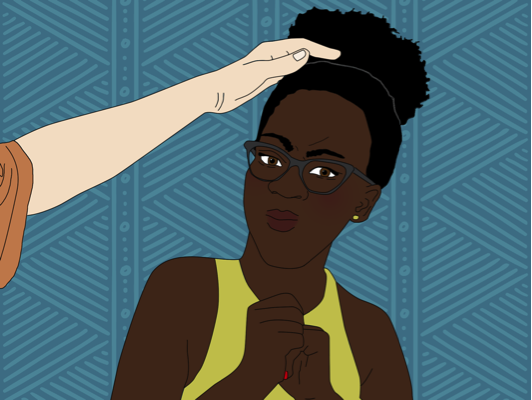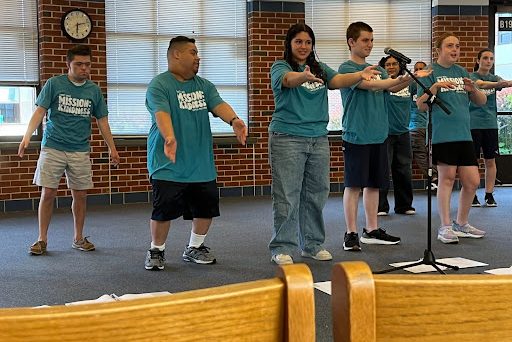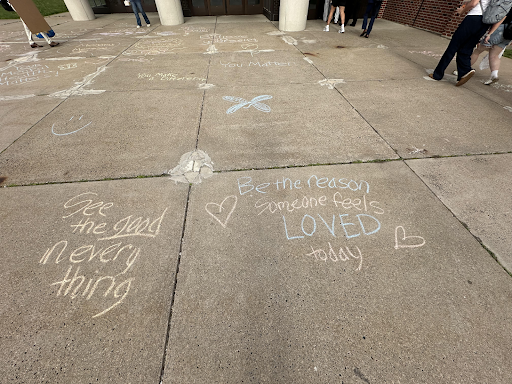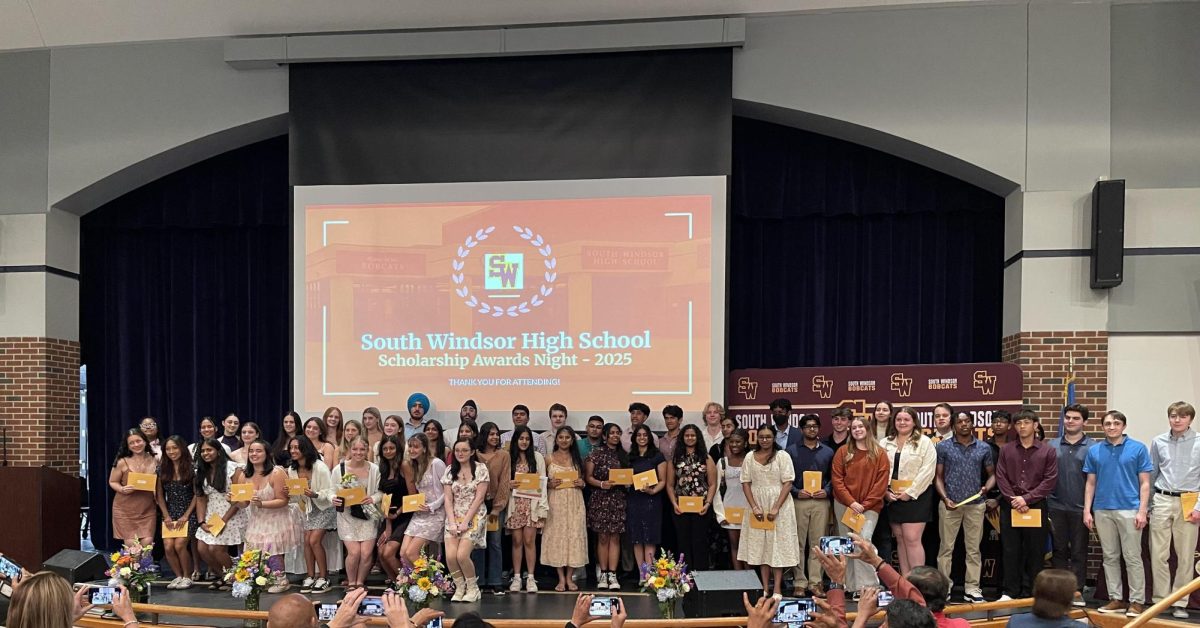Don’t Touch My Hair

November 2, 2017
By now, it’s known in society to just not mess with black people and their hair. I have continually dodged prying hands in the hallways and classes, complete stranger commenting on and reaching to touch my hair. But, I haven’t even really explained why I dislike it so much. Yes, people’s explanations and opinions will vary but I’m going to try and given a mini history lesson and explain the common beliefs behind our adamance of not touching my hair.
I would say 9 times out of 10 when people, usually white, ask to touch my hair the question is following a well-meaning compliment. What they are unaware of is that this question is a very, very common microaggression. Now, I’m sure they never intended for it to be, but I need people to realize everything that comes up with the age old question, “Can I touch your hair?”
Since slavery the objectification of black people and their bodies has been a trend in American history, And while it is drastically different than the violence shown in times of slavery, it is still a prevalent problem in our society. Ever since I was a child I have had friends, teachers, and strangers reaching to touch, pat, and pull my hair. Now I don’t know about your mom, I think you can understand that my mother never really appreciated it when strangers were trying to just touch a baby. Now, I am not saying that I can’t understand your curiosity. As a population, hair like mine has never really been just normally represented in mainstream media. This lack of representation has created a culture of self-hate in the black community with many straightening their hair to better fit what is seen as the norm. Just think how hard it must be to feel beautiful when popular images of “beauty” don’t look like you.
Now, when it comes to the actual problem of asking to or just reaching out and trying to touch my hair, I know there is some confusion as to why this is just a hot button topic, but bare with me for a bit. I have grown up with a very supportive black mom, and unlike even my grandmother, loves and celebrates my black natural hair, but many black women have not grown up around this positivity. To many, their hair is a source of empowerment, a reclamation of their beauty, as my mom says, a crown atop their head. When asking to touch our hair you shift from a complement to fascination. There is not flattery in being exotified like some strange creature, even if your intentions were good. The question can disrupt one’s peace, making them feel abnormal, like some anomaly. And worst of all, sometimes no matter the person or what they think they’re doing, it can be dehumanizing.
At first, you may think it’s just hair, you may even think I am being dramatic. But try to think of the history and just see where we are coming from. Think of why, and how you have this sense of entitlement in being able to touch my hair. You may not be able to fully understand if you are not black, you may think that we’re all just angry black women, or dramatic, or sensitive, but you can still try to respect us. Just don’t get upset when I say that you can’t touch my hair.






